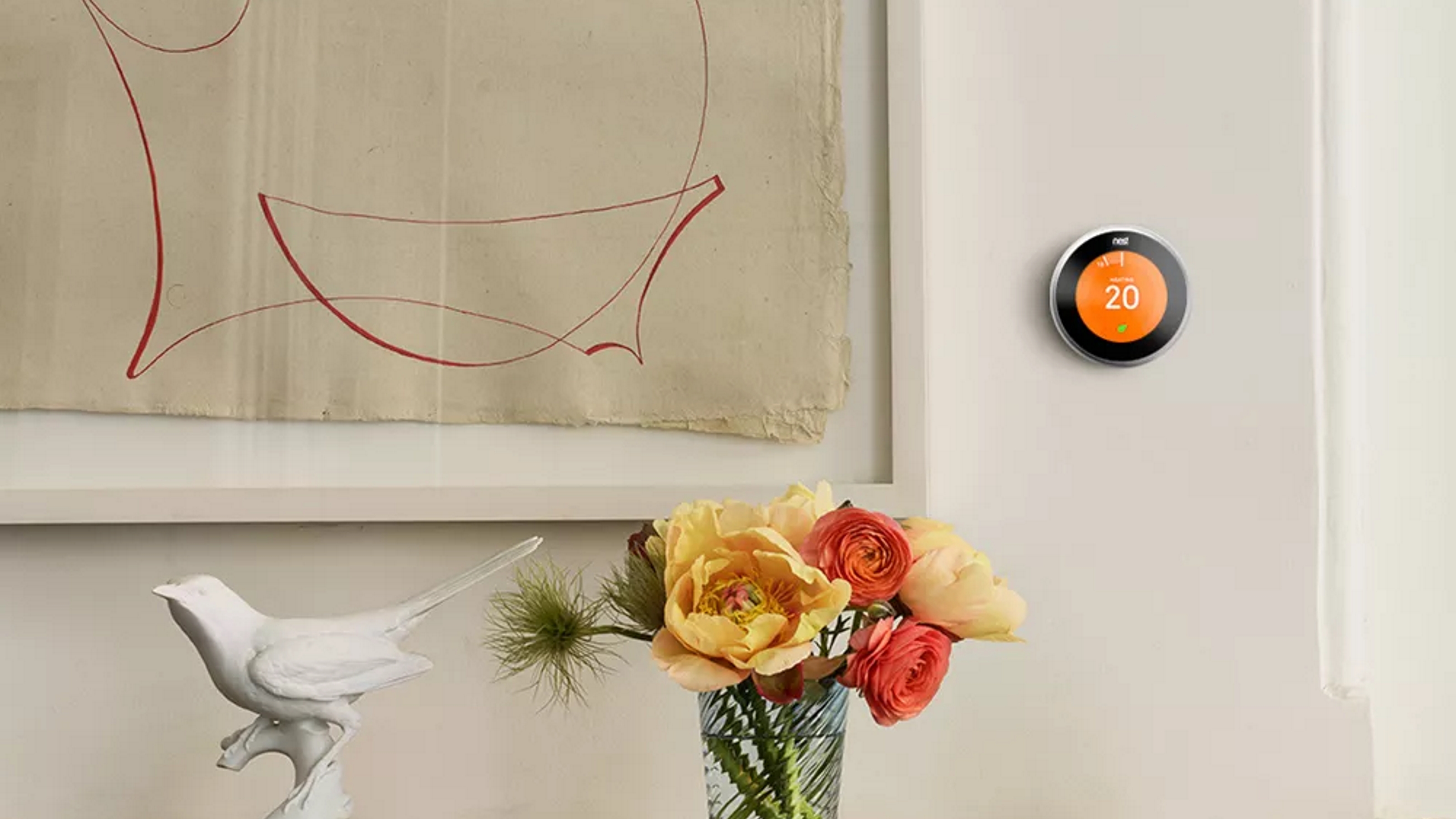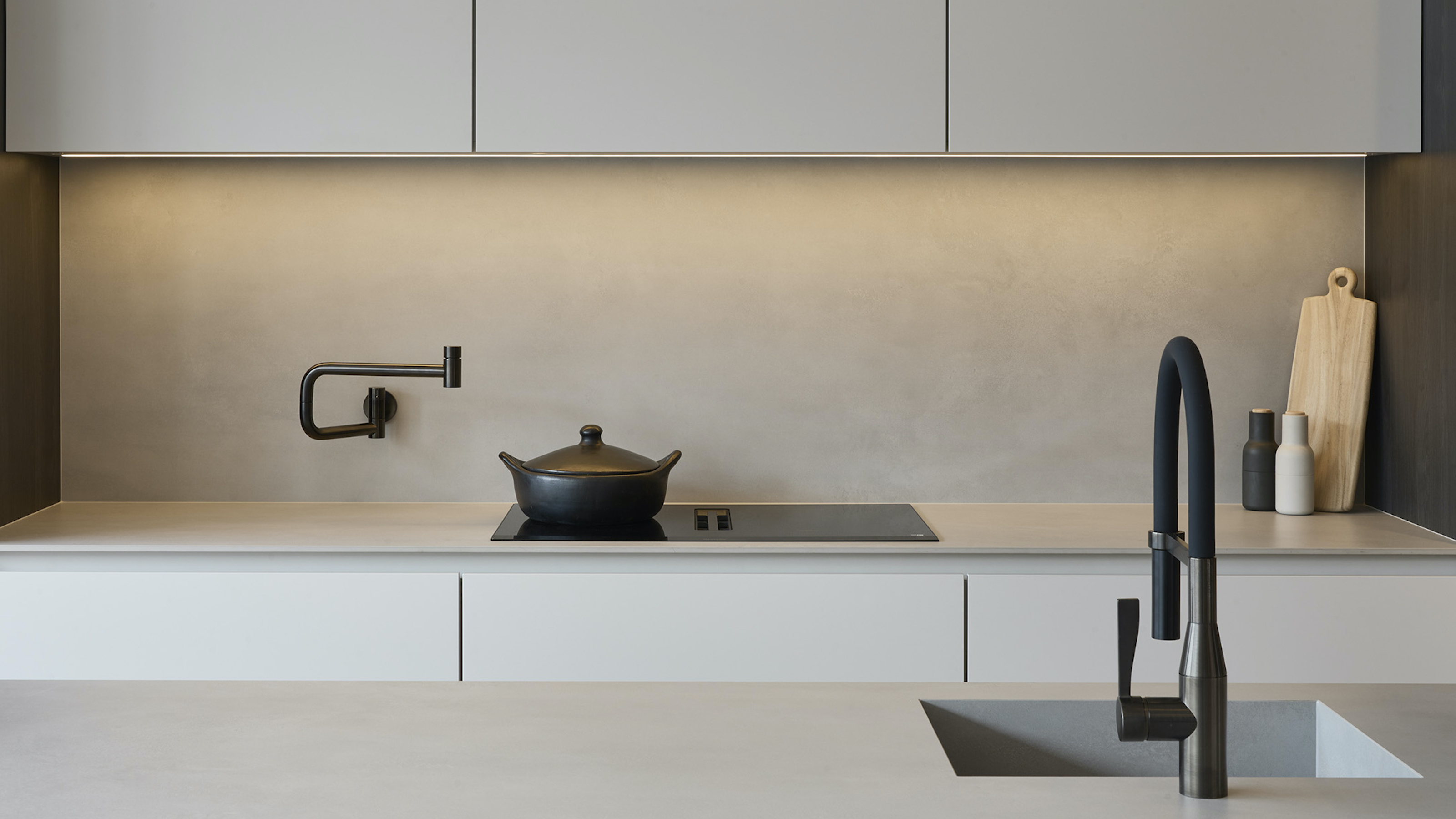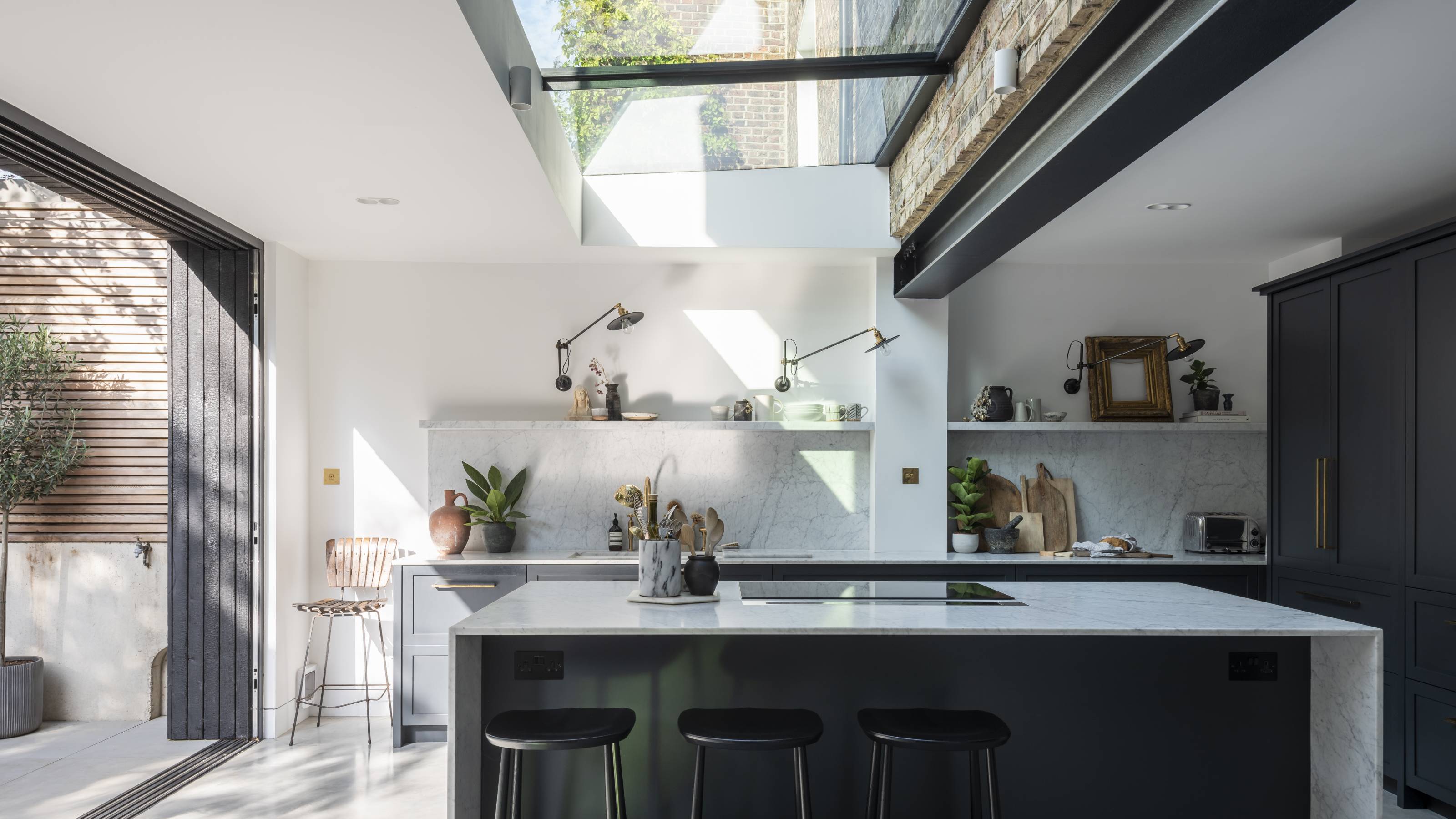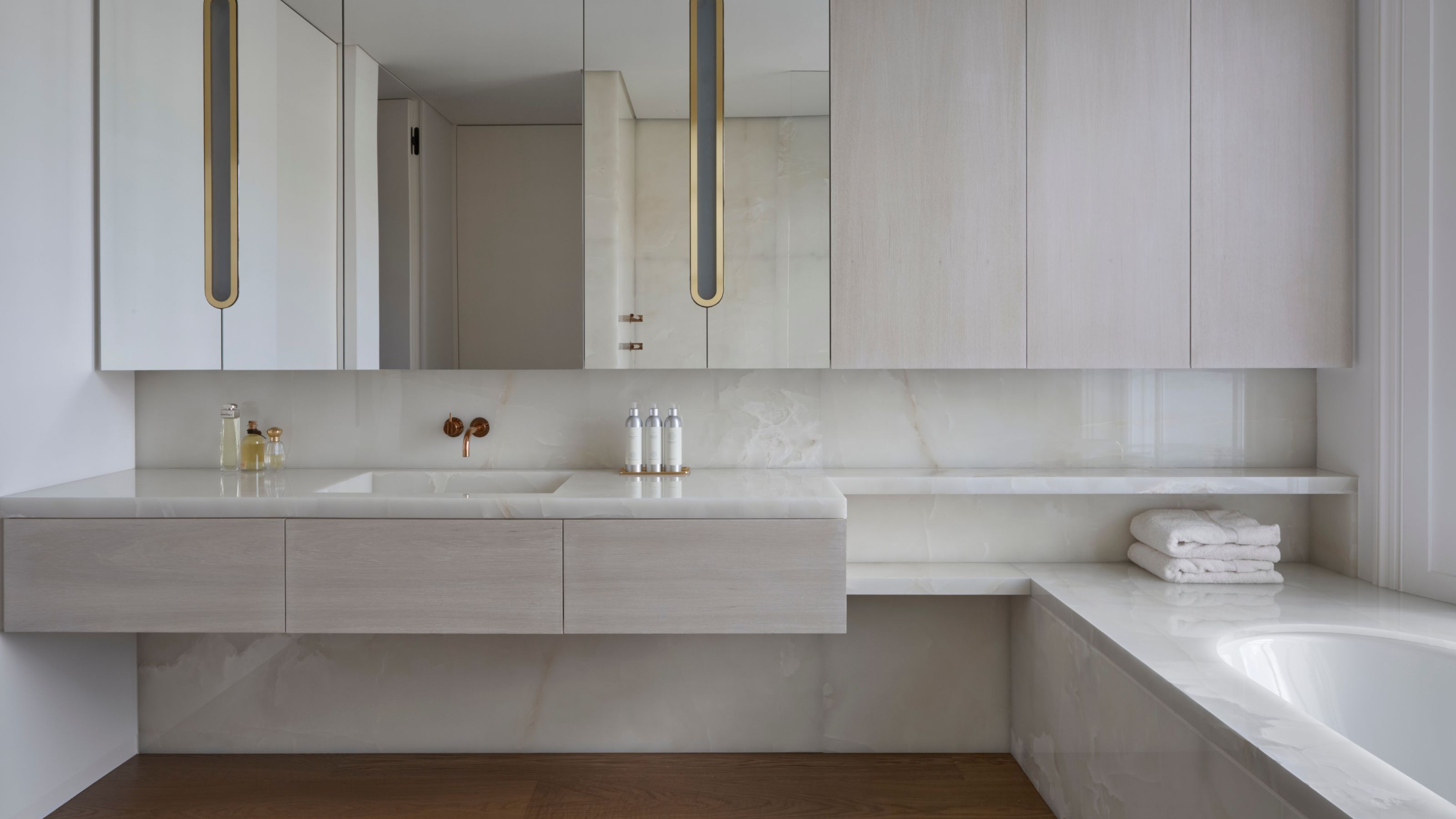An HVAC Expert Shares 3 Smart Tips for Using Timers and Sensors to Save on Household Bills — So You Can Spend On the Finer Things Instead
There are a few things you can do to sync up your home and start saving a few bucks. Here's what you need to know


You'll be happy to hear that HVAC experts say there are a few ways you can use timers and sensors to save on energy bills. A big bill is no fun and often takes away from the joys of cozying up in your luxurious home — but not to worry, as there's a solution.
From understanding the winter setting of your thermostat to pairing your heater with timers and sensors, you can save a few bucks this season.
HVAC experts give us the lowdown on what you can do with timers and sensors around your home and how it will benefit your pocket and space.
How to Use Timers and Sensors to Save on Bills

Investing in a smart thermostat may just be the hero you need when it comes to saving money on bills, among a few other handy tricks. Kelly Russum, the owner of KC's 23 ½ Hour Plumbing & Air Conditioning and HVAC expert, says a programmable thermostat is one of the best investments you can make. We like this Amazon Smart Thermostat, priced at just $79.99.
Kelly says with this, you should "Set your heating to drop to around 62°F at night and increase to 68°F about 30 minutes before you wake up — it saves much energy but is still comfortable. When you’re at work or out for the day, let the temperature drop to 60–62°F in winter or rise to 78–80°F in summer."
"A lot of people make the mistake of completely turning off their HVAC when they leave for short periods, like 30 minutes to an hour, thinking they’ll save money," explains Kelly. "In reality, the system works harder to restore the desired temperature, and you end up spending more."
The expert says you should also keep an eye out for "supplemental devices" such as heaters and ceiling fans, as they can make a big difference when paired with timers or sensors. Kelly adds: "Space heaters are notorious energy hogs, so plugging them into a timer-controlled smart plug is essential. For example, run a space heater in a home office only during working hours, then shut it off automatically at night."
Kelly continues: "Pairing ceiling fans with sensors is another great idea. People often think running a fan constantly helps cool a room, but that’s only true when someone’s there to feel the airflow, and it’s just a waste of energy when the room is empty. Motion sensors can shut fans off when the room is empty, saving unnecessary electricity."
Lastly, If you have whole-house fans or dehumidifiers, Kelly recommends you run them during off-peak hours, like the early morning or late evening, for lower utility rates. See, there are a few dehumidifier benefits you'll want to keep an eye out for after all.
Do Timer Switches Use a Lot of Electricity?

According to Kelly, "Timer switches use very little electricity, typically less than 1 watt per hour, adding roughly $0.15–$0.60 per month to your energy bill, even with multiple timers. This is nothing compared to the energy they can save by turning off air conditioners and heaters when you don’t need them."
He continues: "A typical home might need 3–6 timer switches for HVAC systems and supplemental devices, such as a programmable thermostat for the central HVAC and timers for space heaters or ceiling fans. Basic plug-in timers cost $10–$20 each, and the cost of a programmable thermostat starts at $50."
You can find many programmable thermostats across different retailers. For example, this Honeywell Home RTH7600D 7-Day Programmable Touchscreen Thermostat from Amazon is priced at just $57.93.People are also currently loving this Honeywell Home 1-Week Programmable Thermostat from Target.
FAQs
What is the purpose of timers and sensors?
"Homeowners mainly install timers and sensors to reduce energy waste and pay less for the bills," says Kelly.
However, in addition to reducing energy consumption and lowering your bills, the expert says "timers and sensors reduce the fire risks and prolong the lifespan of your devices."
Be The First To Know
The Livingetc newsletters are your inside source for what’s shaping interiors now - and what’s next. Discover trend forecasts, smart style ideas, and curated shopping inspiration that brings design to life. Subscribe today and stay ahead of the curve.

Faiza is the Renovation Editor at Livingetc. Faiza is currently renovating her small kitchen in her dainty apartment in London. Faiza previously worked for The Independent as a News Feature Writer, where she crafted lifestyle, entertainment, and news stories. She also worked as an Audience Editor for the newspaper for almost two years. Thriving in the busy newsroom, Faiza also spent her time crafting stories for Sky News as an SEO reporter, where she produced stories based on trending topics. Lifestyle and interior design is a space she has been interested in for quite some time, and as she blossoms in this field, she will continue to further her skills in design and gardening. Faiza has a background in SEO, social media, and reporting. Her passion for writing goes beyond her workm as she loves all things poetry and creative writing.
-
 The 'New British' Style? This Victorian London Home Embraces Its Owners' Global Background
The 'New British' Style? This Victorian London Home Embraces Its Owners' Global BackgroundWarm timber details, confident color pops, and an uninterrupted connection to the garden are the hallmarks of this relaxed yet design-forward family home
By Emma J Page
-
 Muji Living Room Ideas — 5 Ways to Harness The Calming Qualities of This Japanese Design Style
Muji Living Room Ideas — 5 Ways to Harness The Calming Qualities of This Japanese Design StyleInspired by Japanese "zen" principles, Muji living rooms are all about cultivating a calming, tranquil space that nourishes the soul
By Lilith Hudson
-
 These Are the Dos and Don'ts of Bamboo Plant Placement — Follow This to Avoid Bad Feng Shui
These Are the Dos and Don'ts of Bamboo Plant Placement — Follow This to Avoid Bad Feng ShuiBy following the experts' guidance on where to place this houseplant you can usher luck, wealth, and prosperity into your home
By Lilith Hudson
-
 Is It Okay to Have a Mirror Facing a Door in Feng Shui? The Verdict Is In and It Just Might Surprise You
Is It Okay to Have a Mirror Facing a Door in Feng Shui? The Verdict Is In and It Just Might Surprise YouDecorating your home with mirrors calls for intention if you're dressing your space in accordance with Feng Shui. Here's what you should know.
By Amiya Baratan
-
 4 Things to Unpack as Soon as You Move House — For a Comfortable and Organized Fresh Start
4 Things to Unpack as Soon as You Move House — For a Comfortable and Organized Fresh StartIf you have a major move in the works and you're looking to prepare in advance, this is the starter kit you need to properly set up your new home.
By Amiya Baratan
-
 10 Decluttering Challenges to Have on Your Radar This Year — For a Tidier, More Mindful Home
10 Decluttering Challenges to Have on Your Radar This Year — For a Tidier, More Mindful HomeIf you're interested in transforming your home for the better, here are 10 decluttering challenges I recommend for a professionally tidy space.
By Amiya Baratan
-
 Biophilic Decluttering — What to Take Out of Your Home (and What to Put in) for a More Natural Home
Biophilic Decluttering — What to Take Out of Your Home (and What to Put in) for a More Natural HomeTry your hand at biophilic decluttering to ground your interiors, connect to the environment, and cure chronic clutter in one go. Here's how.
By Amiya Baratan
-
 The 10 Different Types of Kitchen Taps — And the Pros and Cons of Each One to Know Before You Pick
The 10 Different Types of Kitchen Taps — And the Pros and Cons of Each One to Know Before You PickFrom sleek pull-outs to vintage bridge taps, explore 10 kitchen tap styles that mix function, flair, and a splash of cool
By Linda Clayton
-
 How Much Does an Extension Cost in 2025? Renovation and Design Experts Break Down Your Budget
How Much Does an Extension Cost in 2025? Renovation and Design Experts Break Down Your BudgetExplore how much different types of extensions cost in 2025 to budget for your project accurately
By Amy Reeves
-
 9 Bathroom Storage Mistakes You're Probably Making That Make Using This Space Much Harder — And What to Do Instead
9 Bathroom Storage Mistakes You're Probably Making That Make Using This Space Much Harder — And What to Do InsteadDiscover which mistakes are to blame for your overcrowded and cluttered bathroom
By Seraphina Kyprios